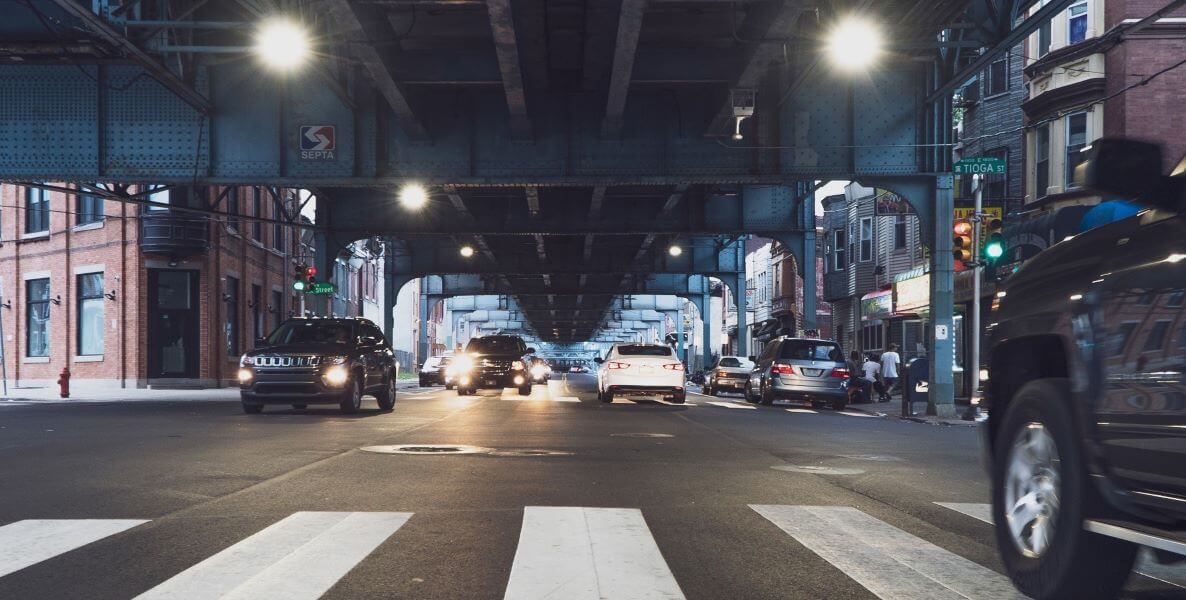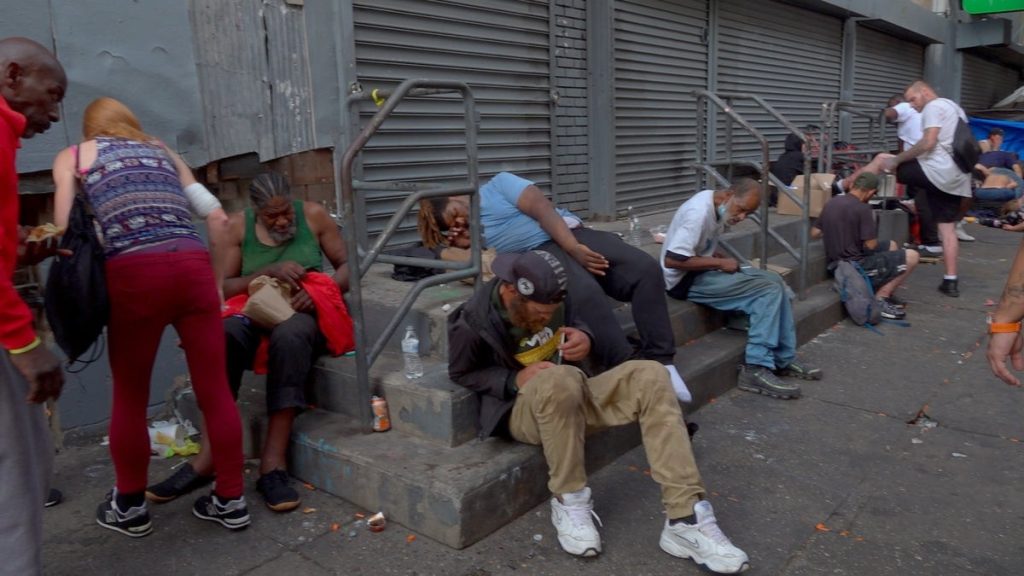In a major crackdown on drug trafficking, the FBI has indicted over 30 members of the Weymouth Street Drug Organization (WSDO) in Philadelphia. This historic operation marks one of the largest federal indictments in the Eastern District of Pennsylvania in recent years. The WSDO, which operated in the Kensington neighborhood, was responsible for distributing dangerous narcotics such as fentanyl, heroin, and cocaine. This article explores the history, impact, and current status of this organization, shedding light on its operations and the broader implications for public safety.
The Rise of the Weymouth Street Drug Organization
The Weymouth Street Drug Organization was active from January 2016 to October 2025, according to the indictment. During this period, it controlled a notorious open-air drug market on the 3100 block of Weymouth Street, which officials have described as “one of the most prolific drug blocks in the city.” This area became a hub for illegal narcotics, with dealers operating around the clock.
The organization’s influence extended beyond just the main block. It also conducted operations at the corners of F Street and Clementine Street, E Street and Wishart Street, and 3000 Potter Street. These locations were used to expand their reach and maintain control over the surrounding areas.
The WSDO was not just involved in drug distribution; it also engaged in violent activities to enforce its dominance. According to the indictment, members used shootings, murders, and physical attacks to intimidate rivals and protect their territory. They also targeted witnesses who provided information to law enforcement, further escalating the level of violence in the community.
Key Leaders of the Organization
The WSDO was led by several high-ranking individuals who played critical roles in its operations. Among them was 45-year-old Jose Antonio Morales Nieves, known as “Flaco,” from Luquillo, Puerto Rico. He was identified as a leader who authorized other members to sell drugs on his block in exchange for “rent.” Morales Nieves also protected the organization by threatening violence against anyone who posed a threat to their business.
Another key figure was 40-year-old Ramon Roman-Montanez, known as “Viejo,” from Philadelphia. He managed the street-level operations, organizing schedules and shifts for the drug dealers. He also oversaw the distribution of proceeds and obtained additional drugs for the organization.
Nancy Rios-Valentin, 33, was another leader responsible for scheduling drug dealing shifts and managing the proceeds. Her role highlights the structured nature of the organization, with clear divisions of labor among its members.
These leaders were instrumental in maintaining the organization’s operations and ensuring its continued presence in the community. However, many of them were arrested during the recent raids, marking a significant blow to the group’s power.
The Impact on the Community
The Weymouth Street Drug Organization had a devastating impact on the Kensington neighborhood. Over the past decade, more than 7,000 crimes have been reported within a two-and-a-half-block radius of Weymouth Street. A significant portion of these incidents involved narcotics and drug violations, but the area also saw a rise in assaults, thefts, and weapons-related offenses.
The presence of the WSDO created a climate of fear and instability. Residents lived under constant threat of violence, and the open-air drug market made it difficult for families to feel safe in their own homes. The organization’s use of violence to control territory and eliminate rivals only exacerbated the situation.
Law enforcement officials have long recognized the need to address the issue of drug trafficking in Kensington. The recent takedown of the WSDO is seen as a major step forward in reducing crime and improving public safety in the area.
The Federal Response
The investigation into the Weymouth Street Drug Organization was part of the PSN Recon program, a criminal intelligence initiative launched by the U.S. Attorney’s Office for the Eastern District of Pennsylvania. This program aims to identify and target the most violent and dangerous individuals in Philadelphia, working in collaboration with federal and state law enforcement agencies.
FBI Director Kash Patel emphasized the importance of this operation, stating that it was the culmination of a deliberate and highly coordinated effort to dismantle a violent criminal enterprise. He praised the cooperation between federal and local agencies, highlighting the success of their joint efforts in removing the WSDO from the streets.
The takedown of the WSDO comes at a time when the federal government is increasing its focus on drug trafficking and crime. President Donald Trump has been pushing for stronger federal law enforcement operations across the country, and the actions in Philadelphia are seen as a reflection of this broader strategy.
Current Status and Ongoing Investigations
As of now, 24 of the 33 defendants have been arrested, while eight are already in state or federal custody. Only one individual remains at large. The investigation continues, with authorities working to identify any remaining members of the organization and ensure that justice is served.
The case has also sparked discussions about the effectiveness of current drug policies and the need for long-term solutions to address the opioid crisis. While the takedown of the WSDO is a significant victory, experts argue that more needs to be done to prevent similar organizations from emerging in the future.
The recent raids and arrests have sent a strong message to drug traffickers across the country. Law enforcement officials are determined to continue their efforts to combat drug trafficking and protect communities from the dangers associated with illegal narcotics.
Conclusion
The Weymouth Street Drug Organization was a powerful and violent criminal enterprise that had a profound impact on the Kensington neighborhood in Philadelphia. Through a combination of drug distribution, intimidation, and violence, the organization maintained control over a dangerous open-air drug market for nearly a decade. However, thanks to the coordinated efforts of federal and local law enforcement, the group has been significantly weakened.
The recent takedown of the WSDO represents a major victory in the fight against drug trafficking. It highlights the importance of collaboration between different law enforcement agencies and the need for continued efforts to address the root causes of drug-related crime. As the investigation moves forward, it is essential to remain vigilant and committed to creating safer communities for all.
Stay updated with the latest news and developments in the fight against drug trafficking. Explore today’s headlines to stay informed about the issues affecting your community and the nation as a whole.
Author: Alex Johnson
Title/Role: Senior Investigative Journalist
Credentials: With over a decade of experience covering crime and law enforcement, Alex has reported on some of the most significant cases in the United States. His work has been featured in major national publications, including The New York Times and The Washington Post.
Profile Link: Alex Johnson Profile
Sources:
– FBI Press Release on Weymouth Street Drug Organization
– Philadelphia Police Department Statement
– U.S. Attorney’s Office for the Eastern District of Pennsylvania
Related Articles:
– Understanding the Opioid Crisis in Philadelphia
– The Role of Federal Law Enforcement in Combating Drug Trafficking
– Community Impact of Drug-Related Crime
Image Optimization:
–
–
–
– 
– 












More Stories
US Trending News: Washington vs Illinois Football: Key Matchups and Game Preview
US Trending News: What to Expect in ‘Welcome to Derry’ Episode 2: Full Recap and Analysis
US Trending News: Latest Updates on Western Michigan Hockey: Scores, Players, and Upcoming Games